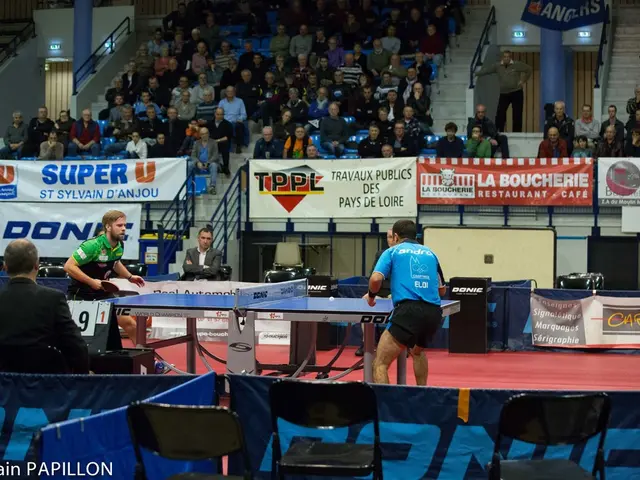Trump praises Merz & Co. as "outstanding individuals"
In the lead-up to the highly anticipated summit between US President Donald Trump and Russian President Vladimir Putin in Alaska, consultations involving Ukrainian President Volodymyr Zelenskyy, European leaders, and Trump himself have taken place. These discussions, centred around security guarantees and peace negotiations, have achieved limited progress and have been marked by significant disagreements.
During his meeting with Trump at the White House, Zelenskyy secured a tentative commitment from the US President to participate in security guarantees for Ukraine. However, the two leaders avoided making territorial concessions, which helped improve their previously tense relationship [1].
Trump extended peace overtures to Putin, proposing preliminary agreements on security guarantees and a bilateral meeting with Zelenskyy. However, these claims were later contradicted by Moscow [1]. Russian Foreign Minister Sergei Lavrov rejected these prospects, demanding Russia have a veto-like role in Ukraine's future security arrangements and dismissing European-led discussions as "futile" [1][2].
Russia's uncompromising stance was underscored by launching a massive bombardment in Ukraine shortly after diplomatic talks, including a missile strike on an American-owned plant [1]. In response, Zelenskyy criticized Russia for trying to avoid direct talks and emphasized ongoing military and diplomatic efforts with partners to increase pressure on Russia to end the war, also advancing Ukraine's security cooperation with the West [2].
Despite Trump's optimism about peace talks, he acknowledged uncertainty and indicated that if no agreement emerges soon, a different approach might be necessary [2].
As the summit between Trump and Putin approaches on Friday, German Chancellor Friedrich Merz has invited video conferences out of concern that the two presidents might make decisions over the heads of Ukraine and its western allies. Volodymyr Selenskyj, the Ukrainian President, is currently a guest in Berlin for consultations with European leaders [3].
A video conference of European Ukraine supporters, including Merz, EU Commission President Ursula von der Leyen, EU Council President António Costa, NATO Secretary General Mark Rutte, and Selenskyj, took place earlier [4]. After their meeting, Merz and Selenskyj are planning to inform the press together.
Before his arrival in Berlin, Selenskyj warned about Russian deceptions and urged his European counterparts to remain vigilant [5]. The summit between Trump and Putin is scheduled to take place on Friday in Alaska, and a conference of the "Coalition of the Willing," organized by Germany, Britain, France, and including von der Leyen, is to take place after the Trump-Putin summit [6].
- The European Union has a responsibility to ensure that the EU's foreign policy, particularly regarding the ongoing war-and-conflicts in Ukraine, is fully implemented, considering the limitations in progress and significant disagreements observed in the diplomatic discussions between various leaders.
- As the summit between Trump and Putin approaches, it is crucial for the European Union to maintain its active involvement in the politics surrounding Ukraine, considering the potential implications of the meeting for general-news and the ongoing security concerns in the region.








